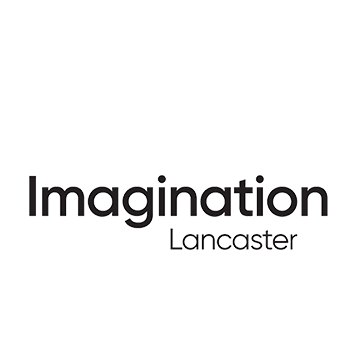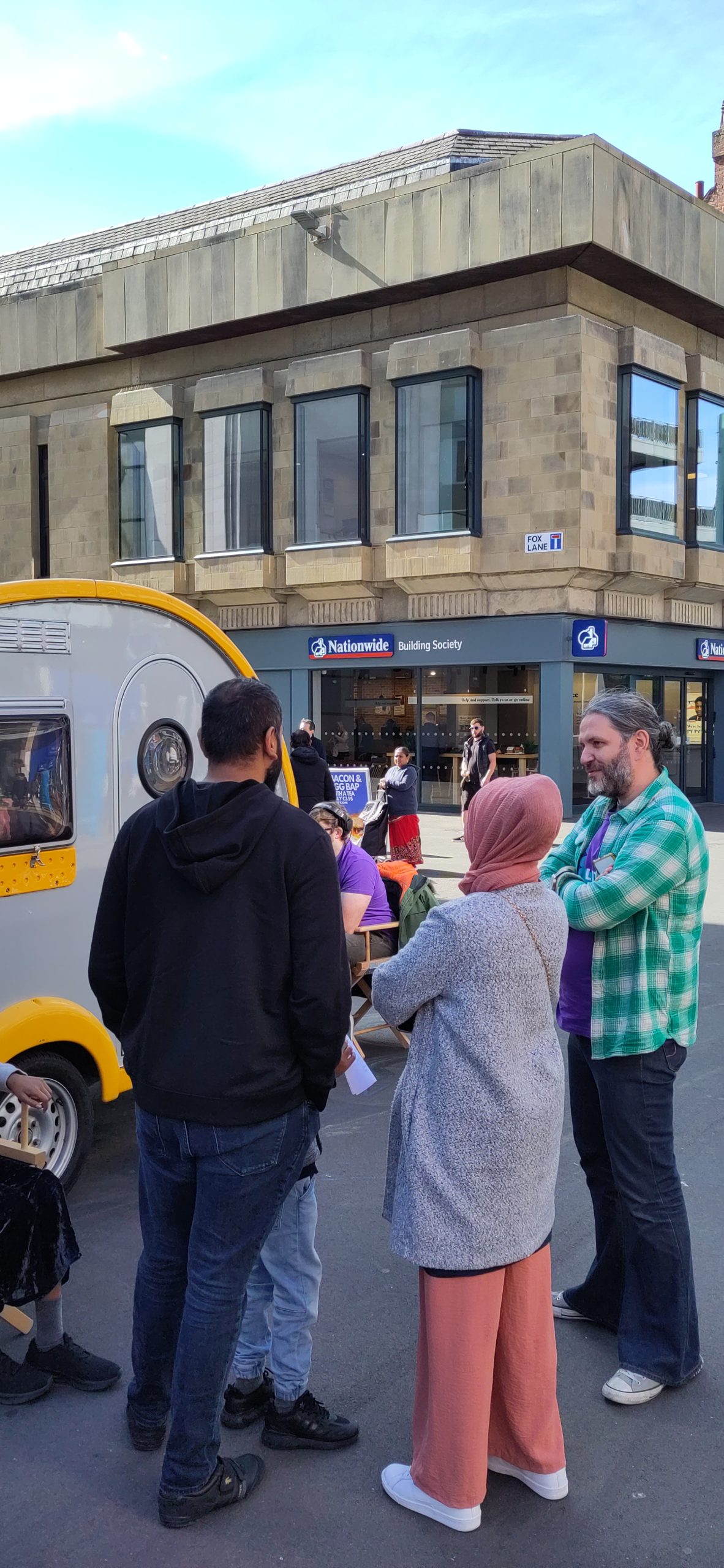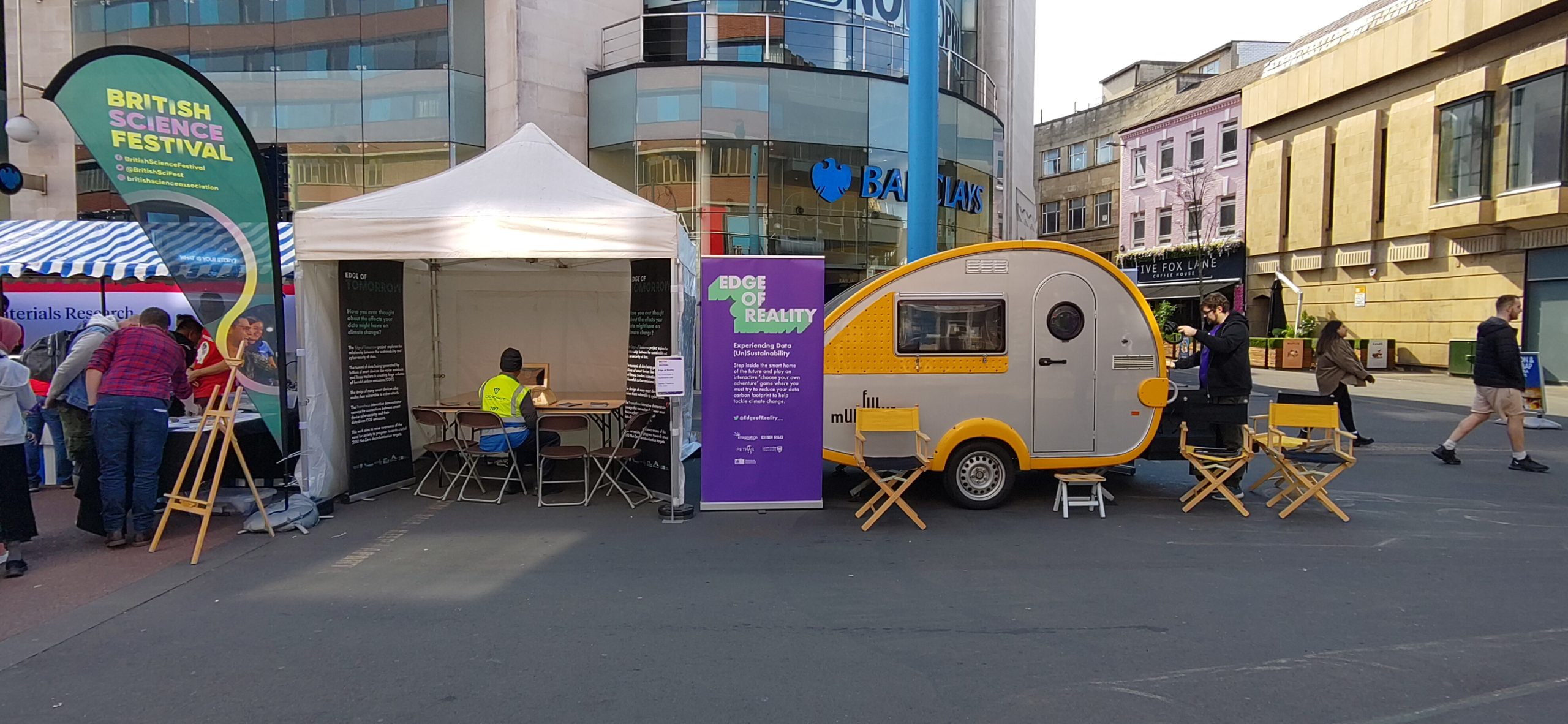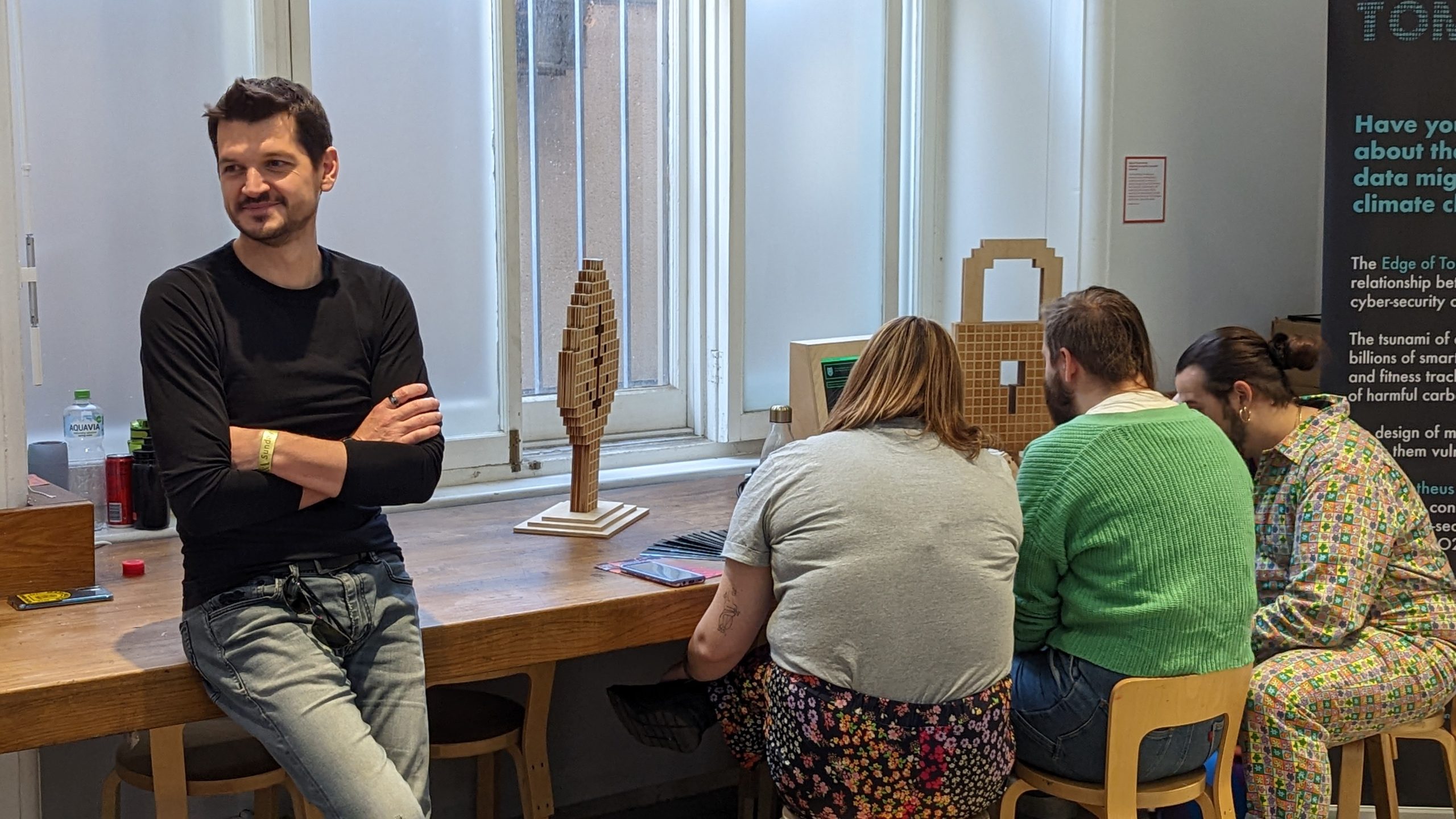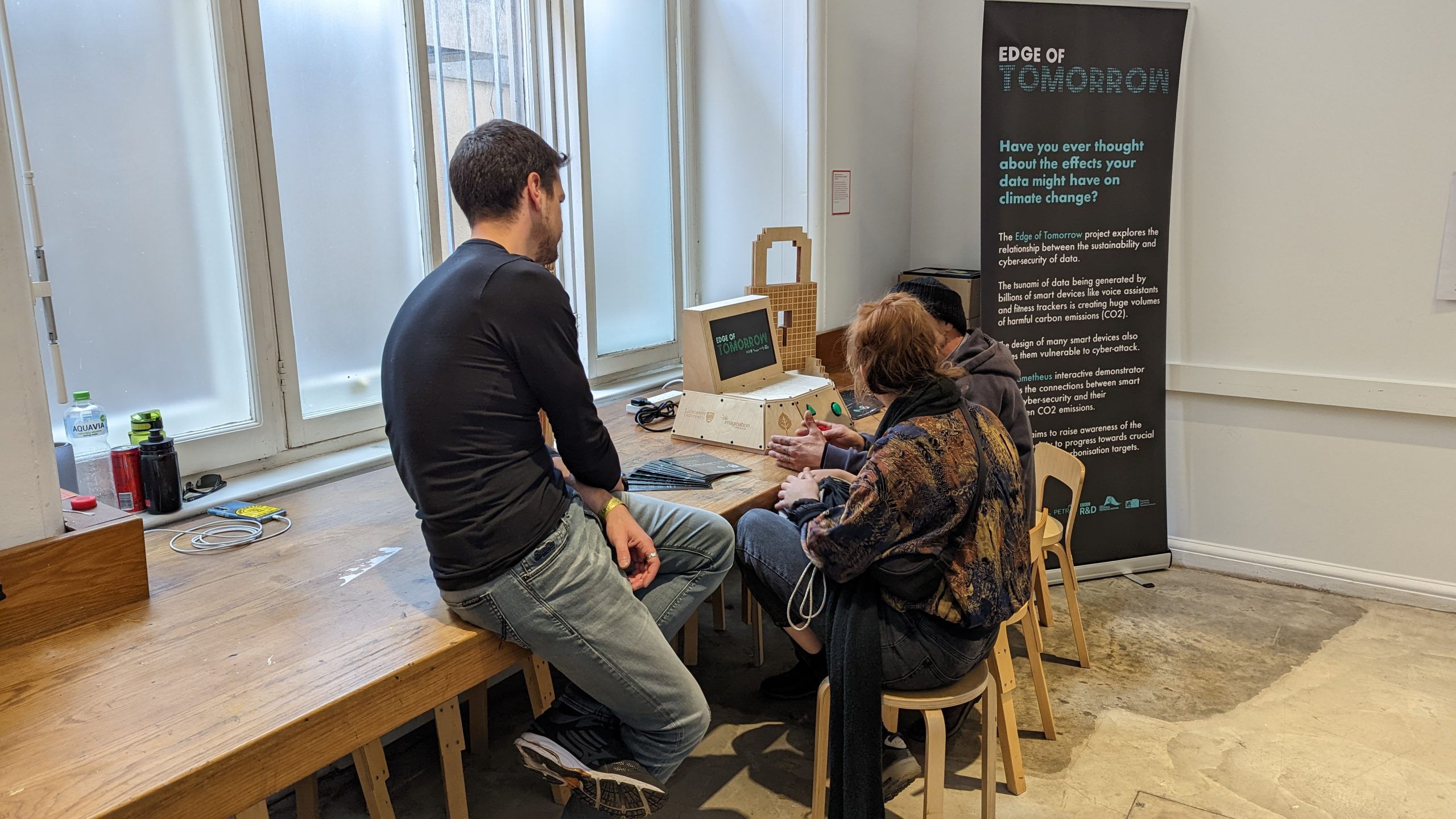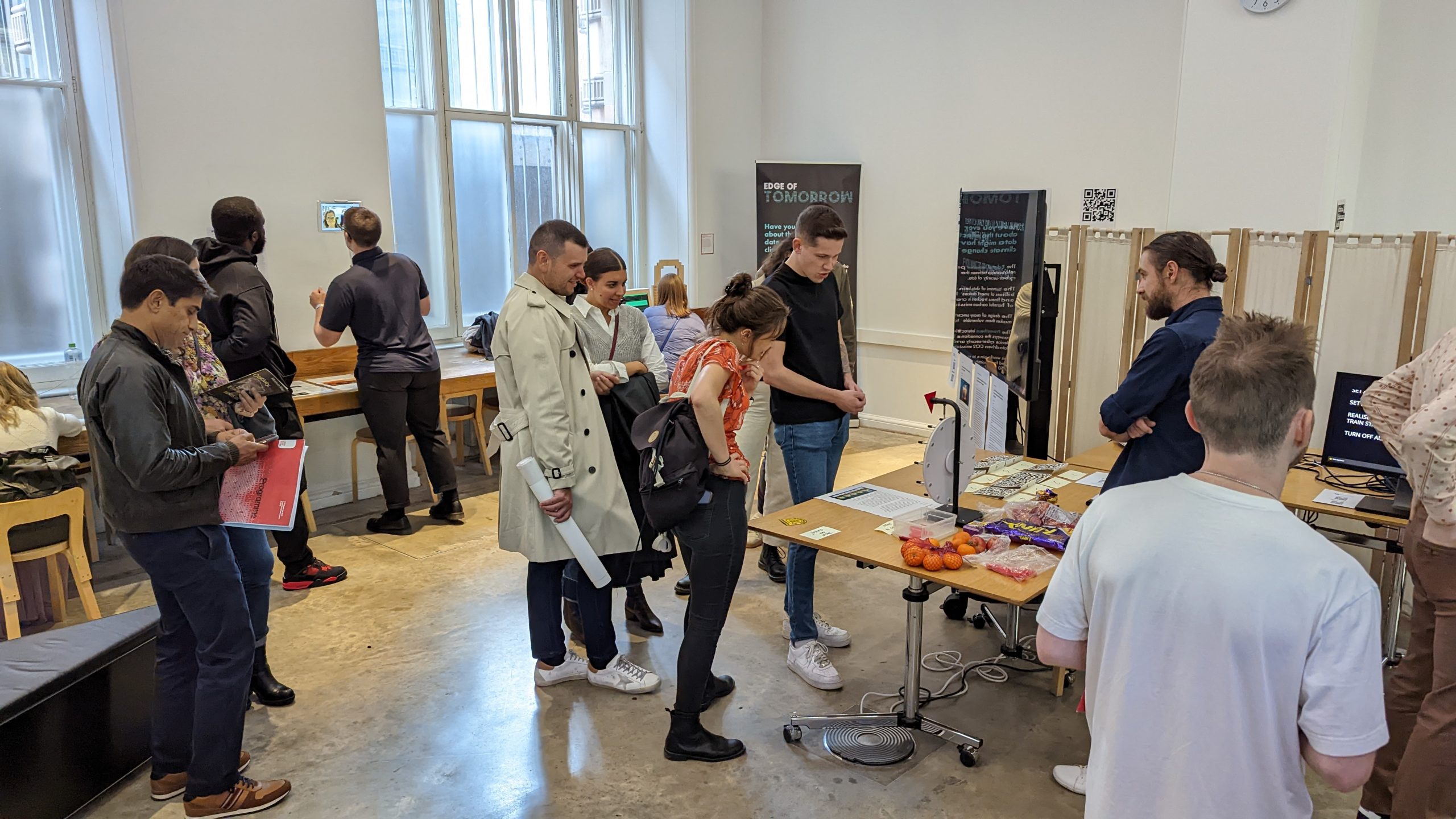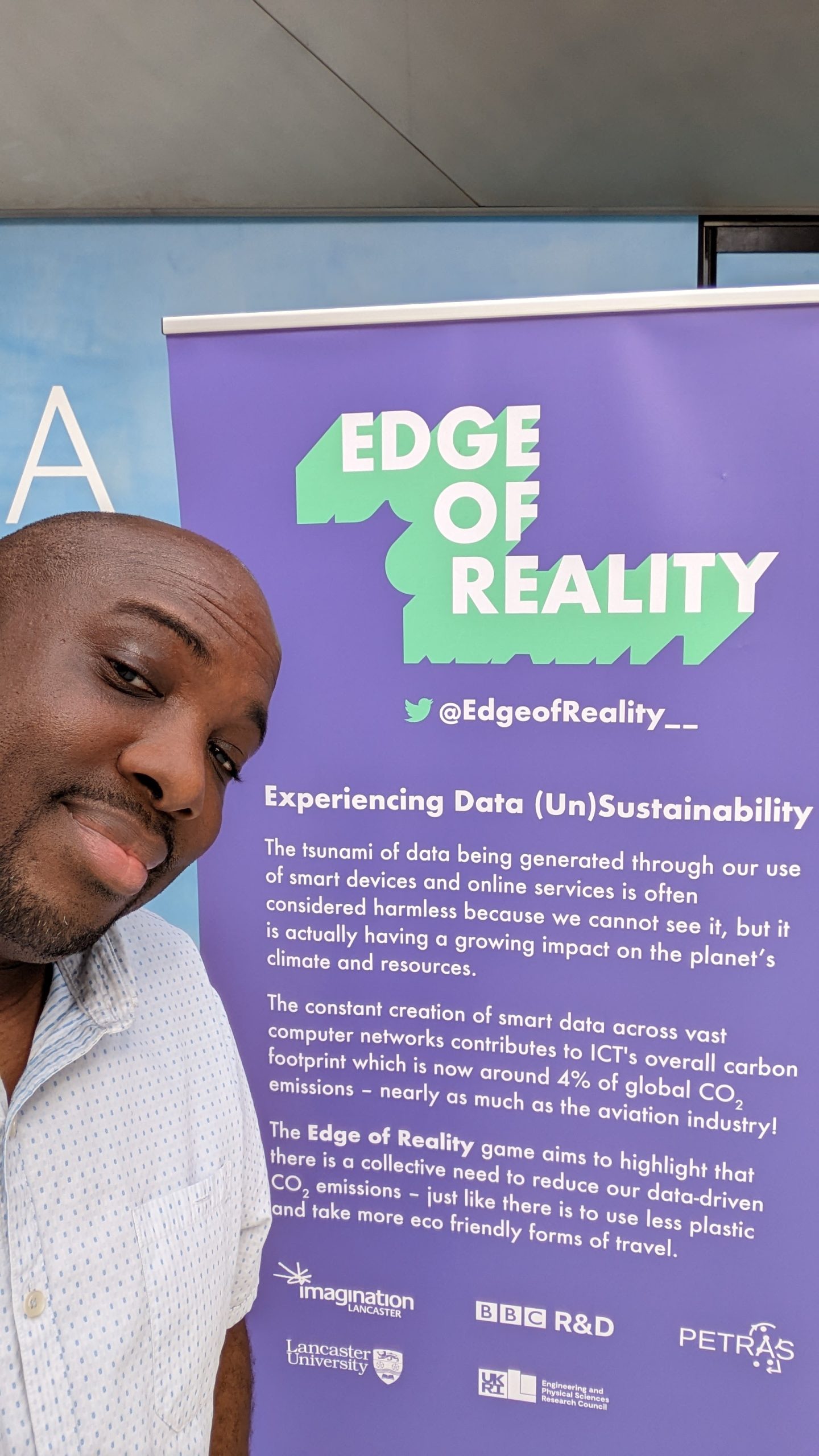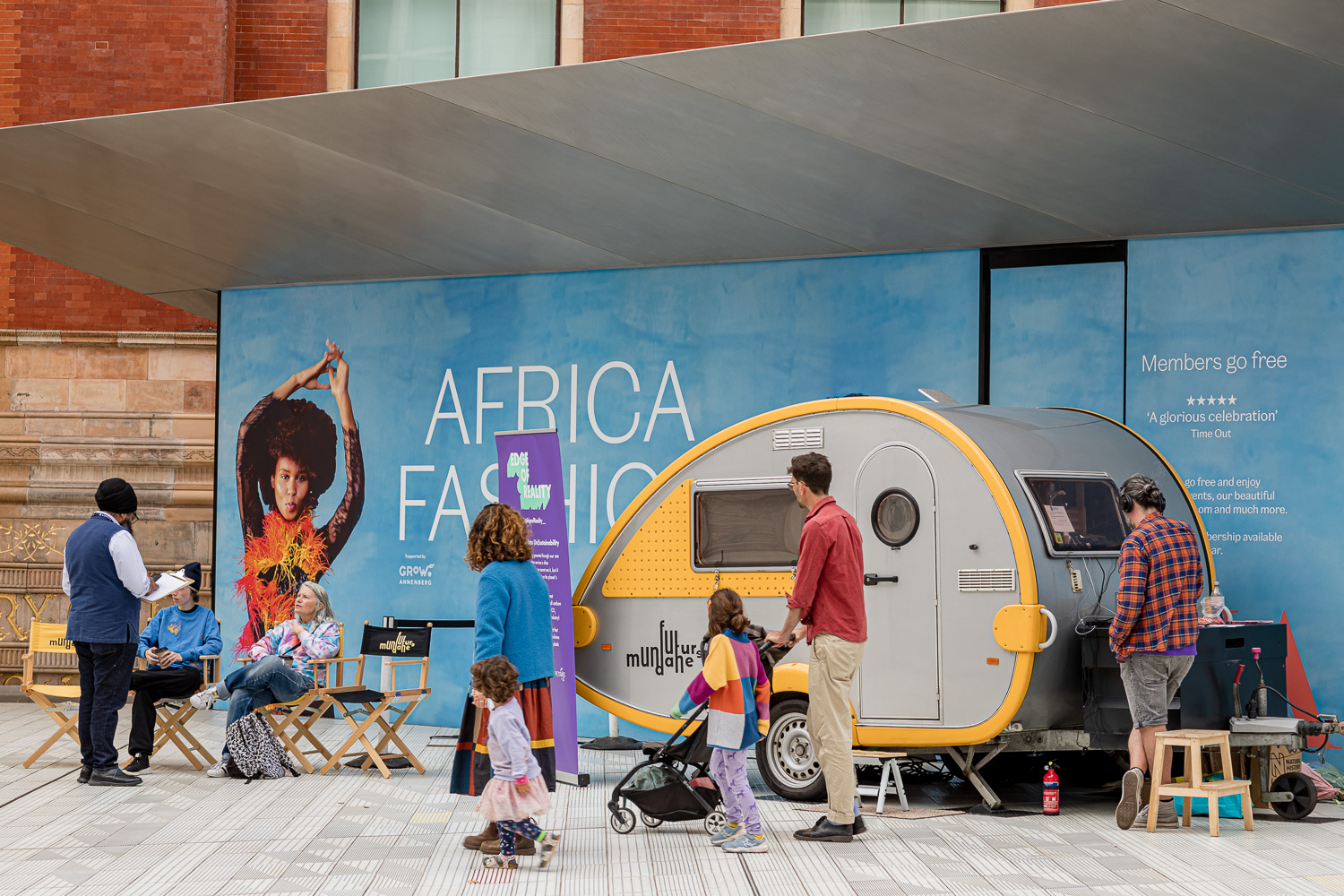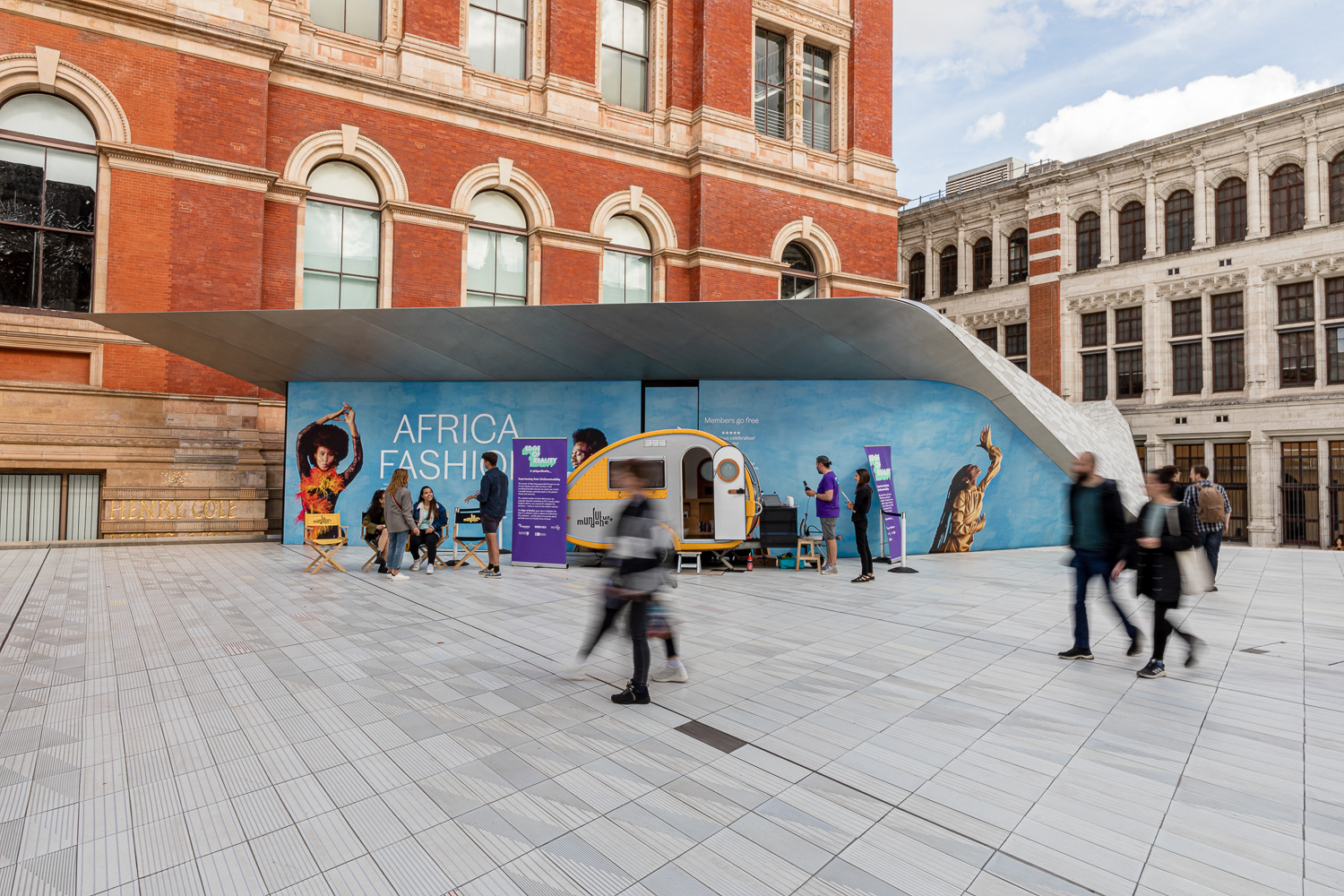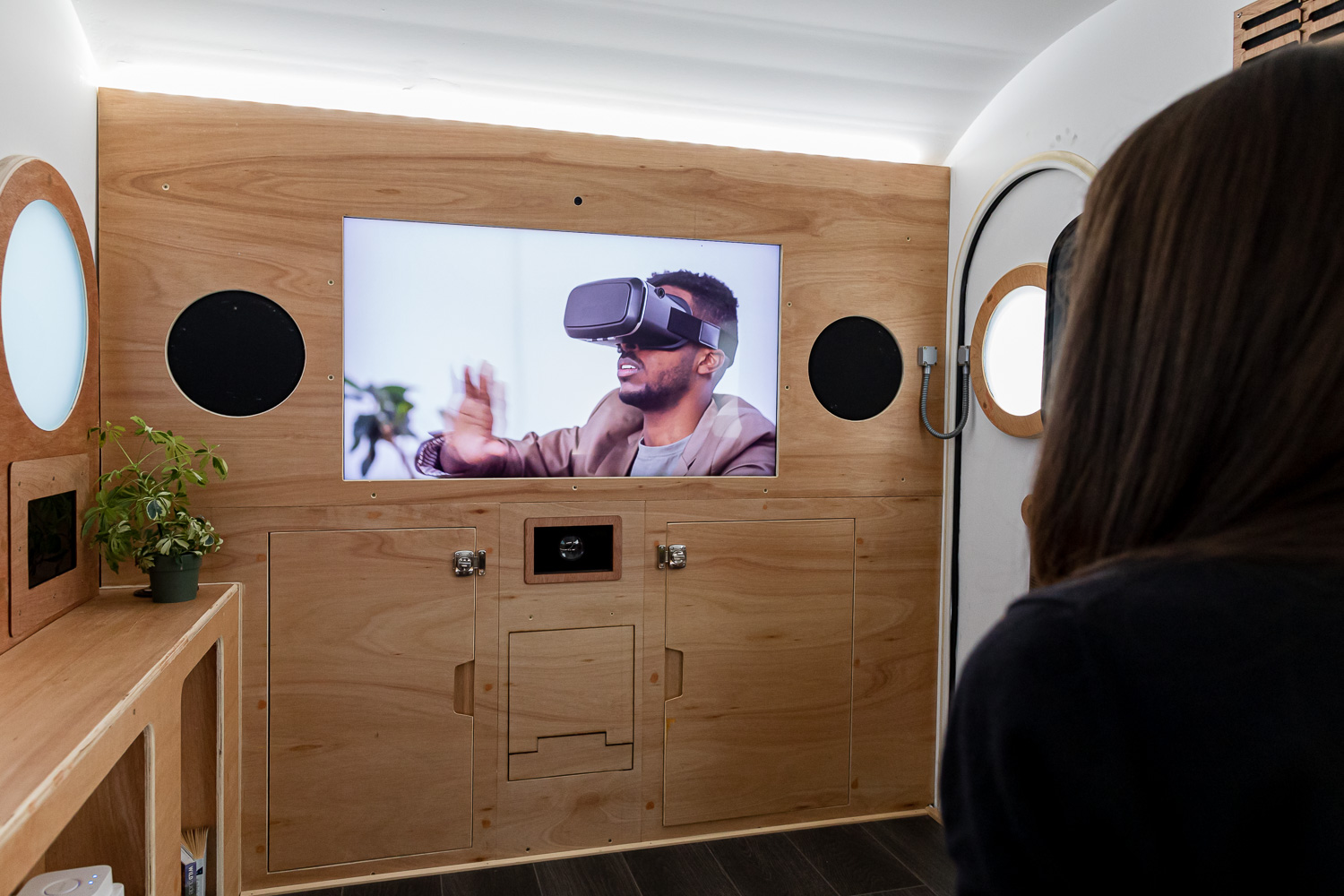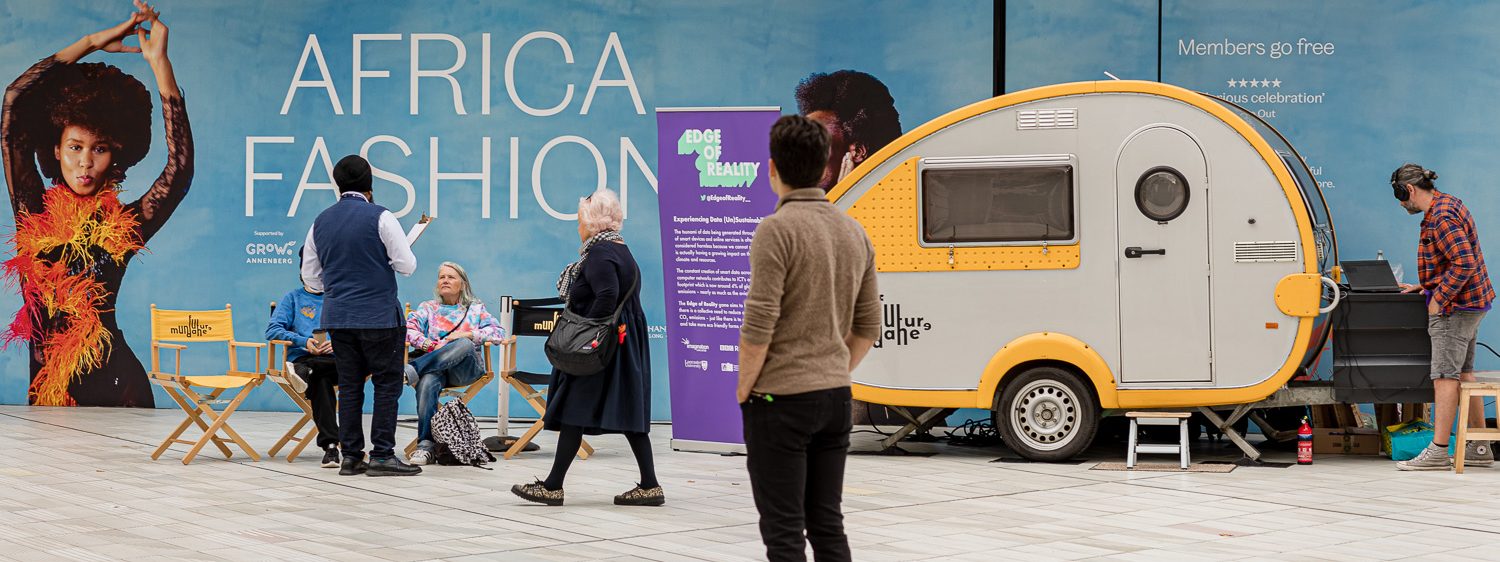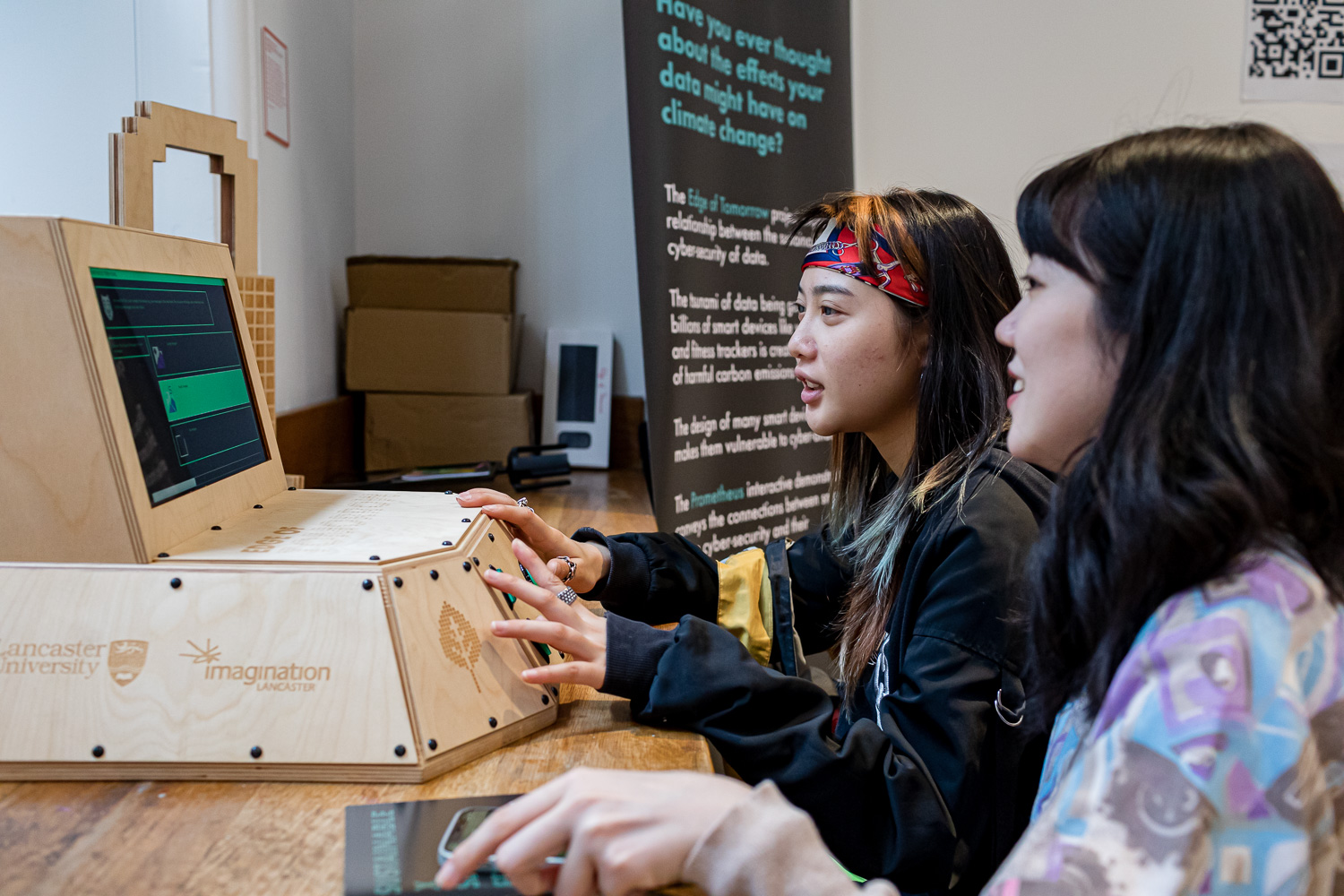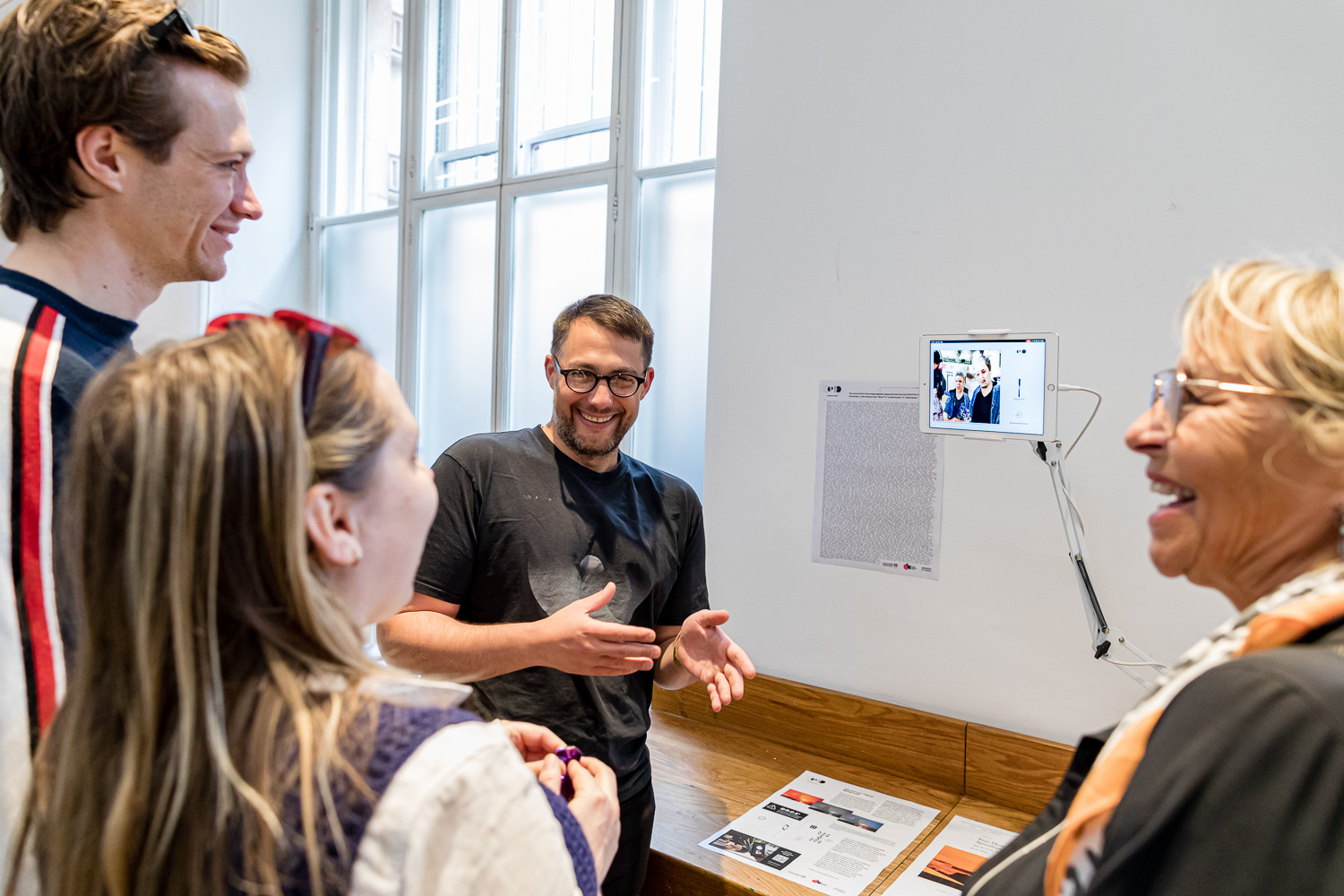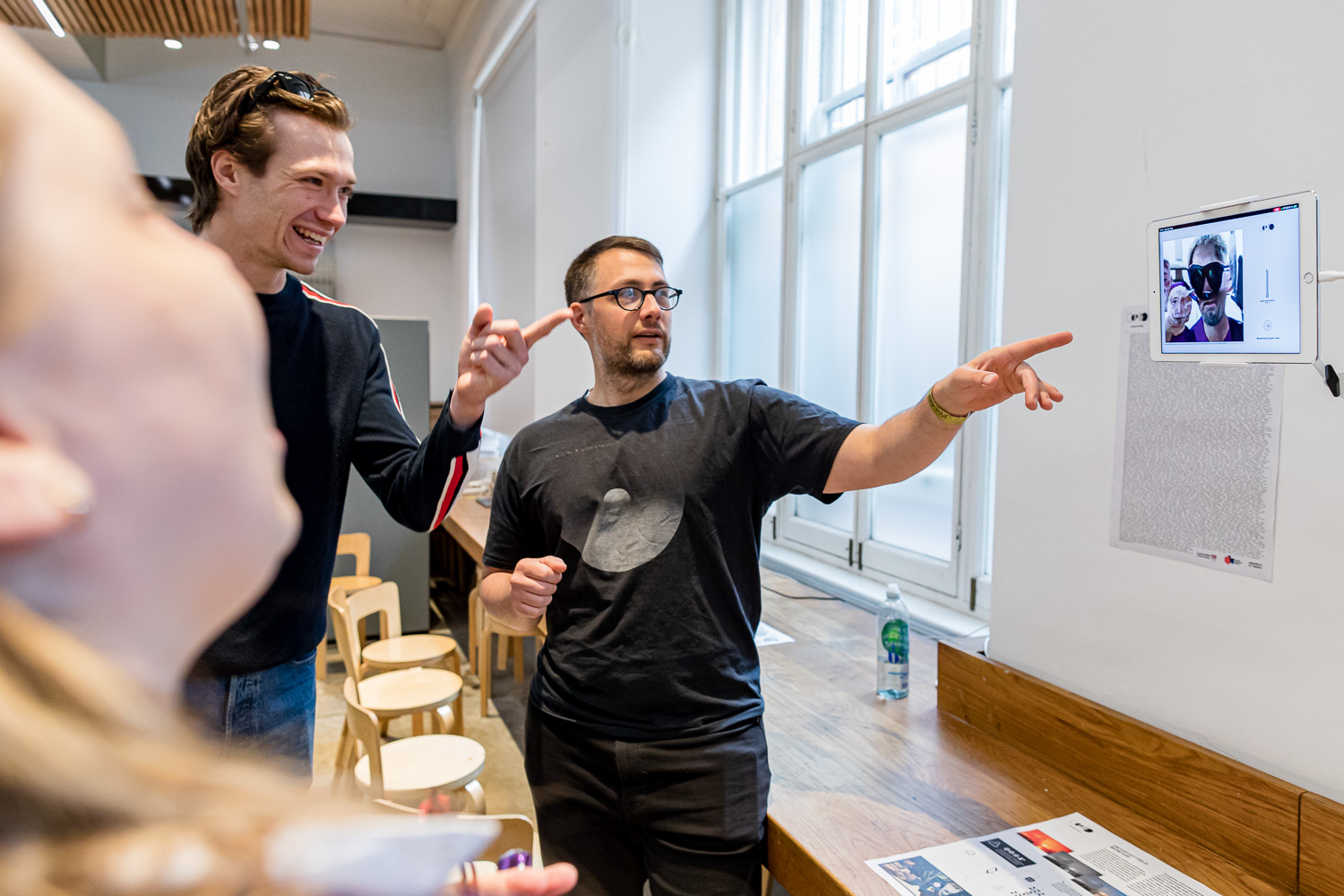September saw Imagination Lancaster take to the road to engage the public in our research. Riding along in the Future Mundane Caravan, we were able to give hundreds of people the chance to consider the sustainability and security of their connected devices.
On Saturday the 17th September we took the Edge of Reality and Edge of Tomorrow projects to The British Science Festival in Leicester. The caravan was so striking in Leicester city centre and it was fantastic to meet so many people curious about connected technology and cybersecurity. Passers by could either take on the role of a hacker in the Edge of Tomorrow choose your own adventure video game, or immerse themselves in a possible living room of the future through the Edge of Reality Project.
A week later we were back on the road, this time to the Victoria and Albert Museum for their Digital Design Weekend, part of London Design Festival. We arrived in for the V&A’s Friday Night Late, the caravan glowing in the dark of the V&A’s courtyard. Both projects elicited great responses from people who engaged, surprising and delighting with storytelling and interactivity. Throughout the weekend the two projects joined Imagination colleagues from the Design Research Works Project and friends from BBC R&D and Open Data Manchester to deliver the Ethical Dilemma Cafe.
Over the course of the two events, over 900 people interacted with either the Edge of Reality or the Edge of Tomorrow.
The Edge of Reality and Edge of Tomorrow projects use speculative design techniques to highlight the growing environmental impacts of data generated by smart devices and online services. Often considered harmless because we cannot see it, the tsunami of data flowing between our devices and the Cloud is contributing to climate change as well as introducing new cybersecurity vulnerabilities.
The interactive games designed by academics at Imagination Lancaster help make these issues more legible to those unfamiliar with cybersecurity. The aim being to demonstrate the need for future smart technologies to be designed in a way that gives users greater agency to negotiate their data impacts at the Edge of computer networks. Ultimately, the projects seek to emphasise the collective need to improve data sustainability – just like there is to increase plastic recycling and adopt more eco-friendly forms of travel.
The caravan which hosted the Edge of Reality project’s speculative experience comes from The Future Mundane, a research project exploring the creation of experiential futures which allow us to perceive the acceptability and adoption challenges of emerging technologies before any problematic design patterns are established. Housed in a caravan it presents a living room of the future that incorporates both real and fictional products and services. This allows us to explore potential futures involving Artificial Intelligence and Data with a wide variety of stakeholders.
Photos © Hydar Dewachi
